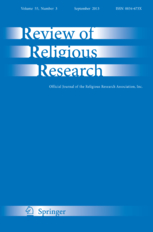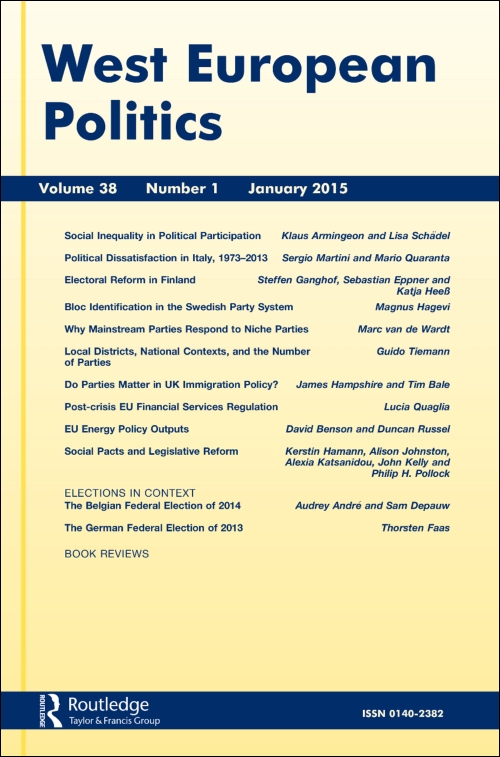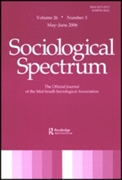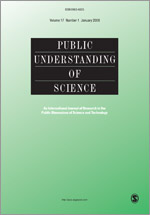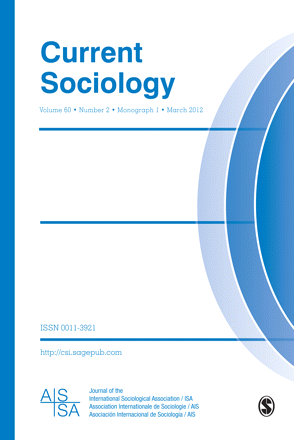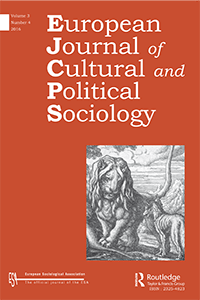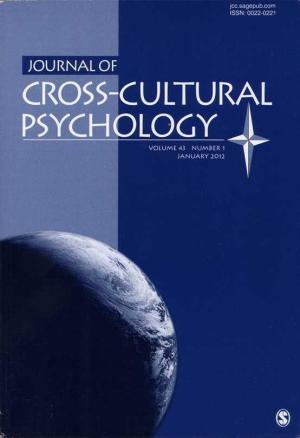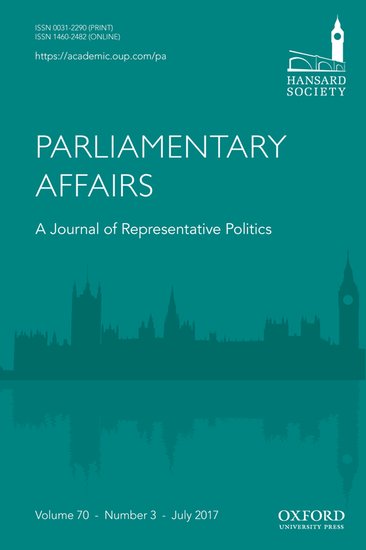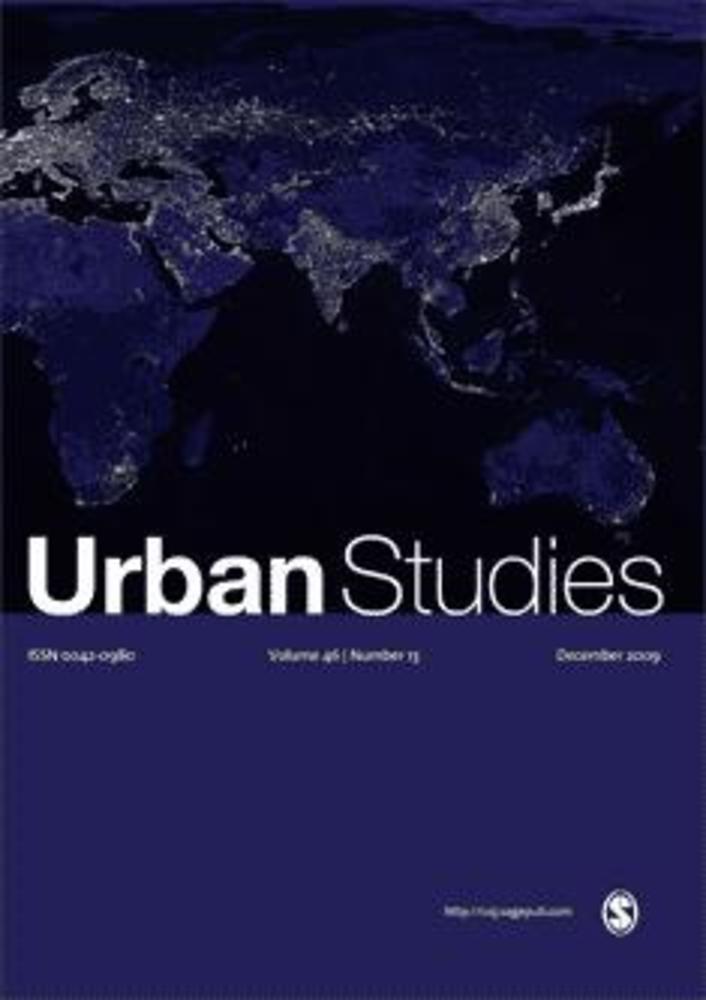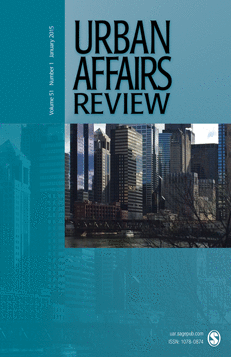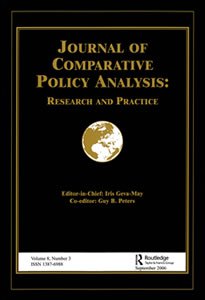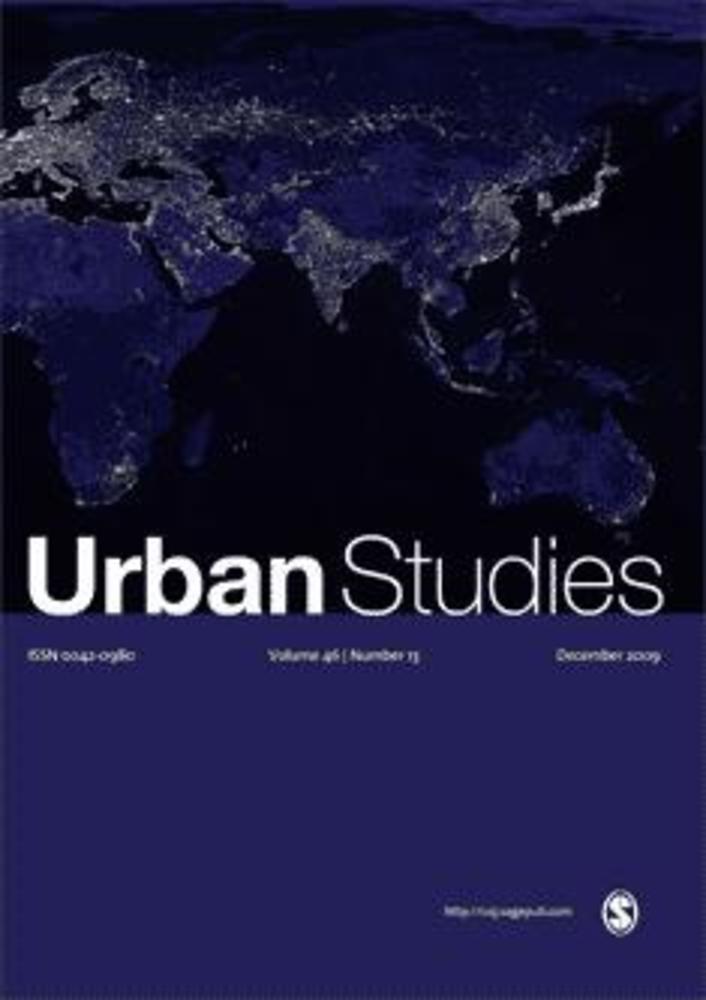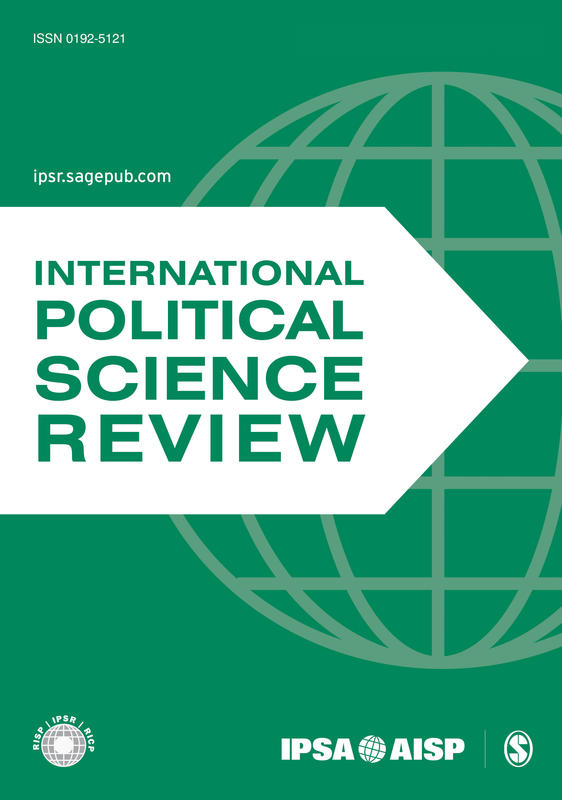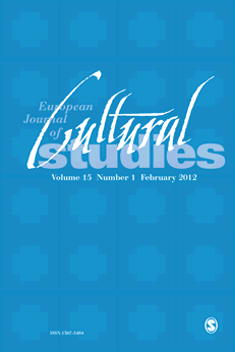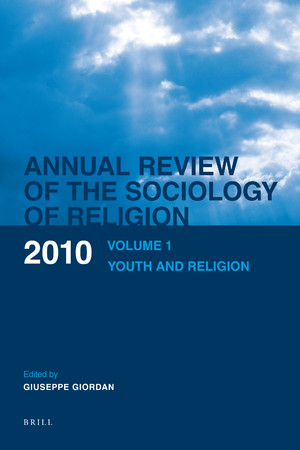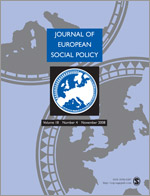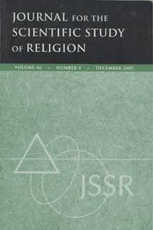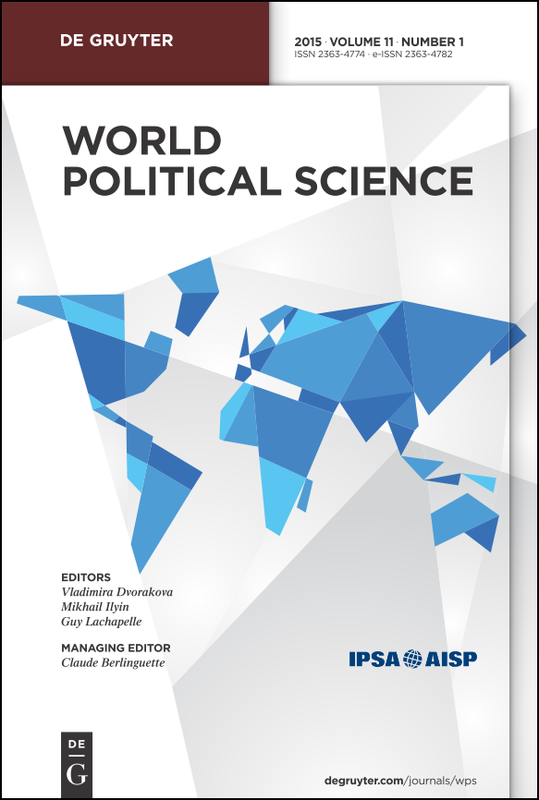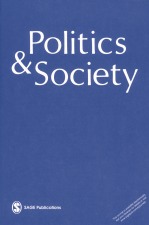2024
Politicians’ high-status signals make less-educated citizens more supportive of aggression against government: A video-vignette survey experiment
Kjell Noordzij, Willem de Koster & Jeroen van der Waal
British Journal of Sociology
Various branches of the literature suggest that exposure to the high-status appearances and lifestyles of politicians in contemporary ‘diploma democracies’ affects the attitudes and behavior of less-educated citizens because it confronts them with their lower status in the political domain. Informed by this, we theorize that such exposure inspires docility (a lower subjective social status, weaker feelings of political entitlement) and revolt (anger, more support for aggression against government). To investigate this, we conducted an original, pre-registered, video-vignette survey experiment among a representative sample of the Dutch population. While our findings likely generalize to other liberal democracies, the Dutch context is suitable to test our theorizing because low-status and high-status appearances and lifestyles are found across the political arena, irrespective of politicians’ substantive positions or use of populist rhetoric. Each less-educated respondent (n=1,390) was presented with a professionally produced video of an actor playing the part of a fictitious politician. This politician signaled either a low or a high status via his appearance and lifestyle. The potentially confounding factors of his substantive positions and populist rhetoric were randomized and controlled for. We find that exposure to the high-status politician increased less-educated citizens’ support for aggression against the government. Through exploratory analyses, we provide tentative suggestions on how the responses of docility and revolt are interrelated, and on how docility could depend on less-educated citizens’ other sources of status.
Examining trust in the police and justice system among ethnic minority members: the case of Moroccan- and Turkish-Dutch citizens in the Netherlands
Cecil Meeusen, Willem de Koster, Jeroen van der Waal & David De Coninck
European Journal of CriminologyWhile extant studies indicate that ethnic minority citizens report relatively low levels of trust in the police and justice system, it is less clear how that trust can be explained. Thanks to its purposive oversampling of Dutch citizens with Turkish and Moroccan origins and nested structure (individuals clustered within neighbourhoods), the NEtherlands Longitudinal Lifecourse Study (NELLS) has enabled us to scrutinize which of the following factors contribute to their trust in the police and justice system: (a) being in a weak socioeconomic position; (b) individual social capital; (c) (perceiving to be) living in underprivileged neighbourhoods characterised by disorder and low social capital; and (d) perceived discrimination. Multilevel structural equation modelling, allowing us to untangle individual perceptions from intersubjective neighbourhood-level conditions, reveals that Moroccan-Dutch citizens report less trust than Turkish-Dutch citizens. We find that perceived neighbourhood disorder and perceived discrimination link to lower trust, while traditional explanations like socioeconomic position and social capital are far less relevant. We discuss our findings’ implications for ongoing debates on, amongst others, the role of ethnicity and neighbourhood conditions in trust in the police and justice system.
The educational divide in climate change attitudes: understanding the role of scientific knowledge and subjective social status
Anne Hoekstra, Kjell Noordzij, Willem de Koster & Jeroen van der Waal
Global Environmental Change
Research has frequently found that less-educated citizens are more skeptical about climate change and show less trust in climate science than their more-educated counterparts. We advance insights on why this educational divide exists by: 1) scrutinizing the relevance of the dominant knowledge deficit explanation by uniquely using an objective measure of scientific knowledge; and 2) theorizing and empirically testing a novel explanation on the importance of subjective social status. Building on recent sociological insights, we theorize that less-educated citizens have a lower subjective social status and feel misrecognized by more-educated citizens, inciting frustration and opposition toward the attitudes and lifestyle of the latter. Because belief in and concern about climate change are predominantly embraced by more-educated citizens and have strong status connotations, less-educated citizens’ opposition to the lifestyle of more-educated citizens is likely also directed at the issue of climate change. We test hypotheses derived from both approaches by analyzing unique survey data gathered among members of a high-quality panel representative of the Dutch population. We focus on two outcome measures: climate change skepticism and distrust in climate science. We find that both the knowledge-deficit approach and the novel explanation involving subjective social status contribute to understanding the educational divide in climate change attitudes, in addition to other approaches covered by control variables such as income and political ideology. Our study concludes with a reflection on the theoretical implications of these findings and their practical implications for information campaigns, which our study suggests should be careful not to prime less-educated citizens’ perceived lower social standing.
Sugar tax and product reformulation proposals reduce the perceived legitimacy of health-promotion institutions: a randomised population-based survey experiment
Tim van Meurs, Joost Oude Groeniger, Willem de Koster & Jeroen van der WaalEuropean Journal of Public Health
Background: Structural nutrition interventions like a sugar tax or a product reformulation are strongly supported among the public-health community but may cause a considerable backlash (e.g., inspiring aversion to institutions initiating the interventions among citizens). Such a backlash potentially undermines future health-promotion strategies. This study aims to uncover whether such backlash exists.
Methods: We fielded a preregistered randomised, population-based survey experiment among adults from the LISS panel (n=1,765; based on random sampling of the Dutch population register). Participants were randomly allocated to the control condition (brief facts about health-information provision/nudging), or one of two experimental groups (the same facts, expanded with either a proposed sugar tax on or reformulation of sugar-sweetened beverages). Ordinary least squares regression was used to estimate the proposed interventions’ effects on four outcome variables: trust in health-promotion institutions involved; perceptions that these institutions have citizens’ well-being in mind (i.e., benevolence); perceptions that these institutions’ perspectives are similar to those of citizens (i.e., alignment of perspectives); and attitudes toward nutrition information.
Results: Trust, perceived benevolence and perceived alignment of perspectives were affected negatively by a proposed sugar tax (-0.24 [95% CI -0.38 – -0.10]; -0.15 [-0.29 – -0.01]; -0.15 [-0.30 – 0.00], respectively) or product reformulation (-0.32 [-0.46 – -0.18]; -0.24 [-0.37 – -0.11]; -0.18 [0.33 – -0.03], respectively), particularly among the non-tertiary educated respondents.
Conclusions: Sugar taxes or product reformulations may delegitimise health-promotion institutions, potentially causing public distancing from or opposition to these bodies. This may be exploited by political and commercial parties to undermine official institutions.
What do stances on immigrants' welfare entitlement mean? Evidence from a Correlational Class Analysis
Thijs Lindner, Stijn Daenekindt, Willem de Koster & Jeroen van der WaalBritish Journal of Sociology
Recent in-depth qualitative research indicates that different people ascribe different meanings to their apparently similar stances on immigrants' entitlement to welfare. We are the first to investigate such variation quantitatively among the public-at-large, applying the novel method Correlational Class Analysis to an original survey fielded among a representative sample in the Netherlands (n = 2138). We uncover five ways of looking at immigrants' entitlement to welfare, each including both people who oppose that entitlement and those who support it. People who adhere to these different viewpoints substantially differ when it comes to income, education, religious denomination, and political preference. We interpret these unique findings and discuss them in relation to the extant literature on welfare chauvinism. Moreover, uncovering what people's stances regarding immigrants' entitlement to welfare mean not only advances the scholarly debate on welfare chauvinism, but also provides a stepping stone for meaning-oriented sociological research on public opinion more generally.
2023
Does the prospect of further sovereignty loss fuel Euroscepticism? A population-based survey experiment
Elske van den Hoogen, Willem de Koster & Jeroen van der WaalEuropean Societies
Whether further European integration is desirable is an ongoing question in public opinion research: both extant research and the outcome of various EU-related referendums show that many citizens hold negative views on proposals that lead to further loss of national sovereignty. An important issue thus arises: does the prospect of such additional sovereignty loss increase negativity towards the EU? This study attempts to answer this question using a pre-registered original survey experiment conducted among members of a nationally-representative high-quality Dutch panel. Our focus is on how exposure to proposed abolishment of EU member states’ right of veto affects EU attitudes. In addition, we analyse whether the exposure effect is shaped by 1) citizens’ prior populist attitudes and 2) the Eurosceptic character of the medium. Concerning the former, informed by recent in-depth qualitative research, we hypothesise that populist attitudes aggravate the extent to which exposure to potential loss of national sovereignty leads to more negative EU attitudes. Concerning the latter, we hypothesise that exposure via a Eurosceptic medium might either aggravate or abate the extent to which the newspaper message leads to more negative EU attitudes. We discuss our findings and provide suggestions for further research.
Explaining the educational gradient in trust in politicians: a population-based video-vignette survey experiment
Kjell Noordzij, Willem de Koster & Jeroen van der WaalWest European Politics
Many liberal democracies are characterised by strong educational gradients in political trust: less-educated citizens have strikingly less trust in politicians than more-educated citizens. Informed by a wide body of research, this study tests systematically the empirical relevance of three characteristics of politicians that have been theorised as explanations for the educational gradient in trust in politicians: (1) substantive cultural stances (progressiveness/conservatism); (2) (non-)populist rhetoric; and a recently developed explanation, (3) perceived distance to citizens’ life-worlds. This study analyses data from an original, pre-registered, video-vignette survey experiment carried out among a high-quality, representative panel in the strategic case of the Netherlands, where respondents were assigned randomly to one of 16 professionally produced videos of an actor playing the role of a fictitious politician. It was found that the politician’s cultural stances and use of (non-)populist rhetoric were important drivers of the educational gradient in trust in the politician.
Does informing citizens about the non-meritocratic nature of inequality bolster support for a Universal Basic Income? Evidence from a population-based survey experiment
Thijs Lindner, Jonathan Mijs, Willem de Koster & Jeroen van der WaalEuropean Societies
Despite citizens’ precarization and policymakers’ enthusiasm for a universal basic income (UBI), this alternative to targeted welfare has, curiously, received limited popular support. We theorize that this is due to people overestimating society’s meritocratic nature. Accordingly, we field a randomized survey experiment with a representative sample of the Dutch population (n = 1,630) to investigate the impact of information provision about the non-meritocratic nature of wealth and ethnic inequality on support for a UBI. Informed by extant research indicating that citizens respond differently to the same information because of material circumstances or different worldviews, we further estimate conditional average treatment effects to explore moderation by (1) income, (2) economic egalitarianism, (3) welfare chauvinism and (4) institutional trust. We find that support for a UBI is higher among individuals with lower incomes and those who are more egalitarian and less welfare chauvinistic. Nonetheless, while exposure to our factual treatment makes participants more concerned about inequality and supportive of economic redistribution in general, it neither directly nor conditionally affects their support for a UBI. Our findings suggest that a UBI may be deemed too radical an approach to addressing inequality. We discuss theoretical and policy implications and provide suggestions for future research.
2022
Receptive to an authoritative voice? Experimental evidence on how patronizing language and stressing institutional sources affect public receptivity to nutrition information
Tim van Meurs, Joost Oude Groeniger, Willem de Koster & Jeroen van der WaalSSM - Population Health
Common strategies to make official nutrition information more persuasive include highlighting its institutional sources and using simple and direct language. However, such strategies may be counterproductive, as institutions are no longer self-evidently deemed to be legitimate in contemporary societies and such language can be viewed as patronizing. Our preregistered, population-based survey experiment fielded among a high-quality Dutch probability sample in February 2022 (n = 1947) 1) examines whether these dominant strategies hold up when tested against suggestions of psychological reactance and source derogation, and 2) scrutinizes if such responses are stronger among less-educated citizens. Our experiment mirrored real-life examples of health-information campaigns concerning healthy and unhealthy beverages, with data collected on seven outcome measures to discern receptivity toward the information and its sources. We found that just highlighting institutional sources in the information did not lead to it being perceived more negatively. This was also the case when the language used could be perceived as patronizing, with reactance only present for one outcome measure. Moreover, while less-educated citizens were generally less receptive to nutrition information (six of seven outcome measures), versions that could possibly be perceived as patronizing or/and highlighted institutional sources did not make them less receptive systematically. Importantly, therefore, while our results show that the dominant health-communication strategies do not increase receptivity either, their use will probably not have a negative effect on the general public and so do not need to be discarded.
Suggested Explanations for the (In)effectiveness of Nutrition Information Interventions among Adults with a Low Socioeconomic Status: A Scoping Review
Tim van Meurs, Willem de Koster, Jeroen van der Waal & Joost Oude GroenigerJournal of Nutritional Science
Unhealthy diets are a major threat to population health and are especially prevalent among those with a low socioeconomic status (SES). Health promotion initiatives often rely on nutrition information interventions (NIIs), but are usually less effective among adults with a low SES than in their high-SES counterparts. Explanations for this lower effectiveness are set out in extant studies, but these have been conducted across a wide range of disciplines and subject fields and using a variety of methodological approaches. We have therefore conducted a scoping review to identify and synthesize: (1) explanations suggested in studies carried out in high-income countries for why NIIs are (in)effective among adults with a low SES; and (2) whether these suggested explanations were studied empirically. Eight databases were searched for relevant studies published since 2009 across various disciplines. This identified 4,951 papers, 27 of which were included in our review after screening. Only 15 of these proposed an explanation for the (in)effectiveness of NIIs among adults with a low SES. Four main themes were uncovered: health literacy, economic resources, social resources, and convenience. Ten studies tested their explanations empirically, but the results were inconsistent. The reasons why NIIs are (in)effective among low-SES adults are therefore still largely unclear. Also, current literature predominantly relies on individualistic explanations, most notably, focusing on psychological and economic attributes. Consequently, if the effectiveness of NIIs among low-SES populations is to be improved, future studies should examine a wider range of explanations and test them systematically and empirically.
Support for EU Membership Comes in Various Guises. Evidence from a Correlational Class Analysis of Novel Dutch Survey Data
Elske van den Hoogen, Stijn Daenekindt, Willem de Koster & Jeroen van der WaalEuropean Union Politics
While ample research has scrutinised the causes and consequences of support for the European Union (EU), a pressing question remains: what do people actually mean when they express support for, or opposition to, their country’s membership of the institution? We use Correlational Class Analysis to assess this. Our analysis of high-quality representative Dutch survey data (n = 2,115), including novel items informed by in-depth qualitative research, reveals that EU support comes in three guises: federalist, non-federalist and instrumental-pragmatist. Strikingly, many Europhiles are not federalists. In addition, we reveal that the social bases of the three types of EU support especially differ regarding political competence, political orientation, and media consumption. The implications for ongoing debates on EU attitudes are discussed.
Population health, not individual health, drives support for populist parties
Joost Oude Groeniger, Alexi Gugushvili, Willem de Koster & Jeroen van der WaalPNAS NEXUS
municipalities were associated with changes in the populist vote share in four parliamentary elections (2006/2010/2012/2017); and (b) 10 waves of panel data collected in 2008-2018 to investigate if changes in individual-level, self-assessed (mental) health were linked to movement in the sympathy, intention to vote, and actual voting for populist parties. The ecological analyses showed that changes in municipality mortality ratios were positively linked to changes in the vote share of right-wing populist parties, but not of their left-wing counterparts; the individual-level analyses identified no such associations. Our findings imply that support for populist politicians is driven by health concerns at the ecological, but not the individual, level. This suggests that sociotropic (e.g., perceiving population health issues as a social problem), but not egotropic (e.g., relating to personal health issues like experienced stigma), concerns may partly explain the recent electoral shifts in favor of populist parties.
Different understandings of welfare benefits among the Dutch public: a focus group study
Thijs Lindner, Willem de Koster & Jeroen van der WaalSocial Policy & Administration
Numerous studies have assessed the extent to which citizens support or oppose welfare benefits (shorthand: benefits). To properly understand this support or opposition, it is important to consider what benefits actually mean to citizens. Indeed, because citizens’ understandings of benefits are likely to vary, there may be similar (different) levels of support for very different (similar) reasons. Consequently, in-depth insights into these understandings are required to properly grasp public attitudes on welfare benefits. Therefore, this study adopts an inductive approach, holding focus-group discussions with Dutch citizens with different social backgrounds (48 respondents/11 gatherings). Three distinct discourses were identified: 1) benefits as self-responsibility and reciprocity; 2) benefits as participation and solidarity; and 3) benefits as well-being and self-actualization. These diverging discourses each involve closely intertwined understandings of the function of benefits, their relationship to work, and welfare deservingness. We discuss the relevance of our findings and make suggestions for future research.
Why are anti-smoking health-information interventions less effective among low-socioeconomic status groups? A systematic scoping review
Tim van Meurs, Feray Coban, Willem de Koster, Jeroen van der Waal & Joost Oude GroenigerDrug and Alcohol Review
Issues: This paper identifies and synthesises explanations
proposed in the literature for the (in)effectiveness of institutional
anti-smoking health-information interventions (HII) among
low-socioeconomic status (SES) adults in high-income countries. Approach: We searched eight databases for relevant papers from
various disciplines: Studies published in English since 2009, on the
effectiveness among low-SES adults of anti-smoking HIIs, aimed at
changing knowledge/behaviour, and conducted by official institutions,
were included. Through a scoping review, we synthesised: study design,
SES indicator, intervention type, intervention source, study population,
outcomes, low-SES effects, equity effects, proposed explanations and
whether these were studied empirically.
Key Findings: Thirty-eight studies were included in this scoping
review. Seventeen suggested explanations for the (in)effectiveness of
the HIIs in low-SES adults, but only nine assessed them empirically.
Thematic analysis yielded six themes: message engagement, material
conditions, cognition, risk perception, social environment and
self-efficacy.
Implications: Explanations for intervention results are not always
present, and empirical evidence for explanations is often not provided.
Including such explanations and testing their empirical merits in future
research can provide the crucial information needed for developing more
effective anti-smoking HIIs for low-SES adults. Conclusions: To our knowledge, this is the first review to explore the explanations proposed for why
anti-smoking HIIs are (in)effective among low-SES adults. It contains
insights for future studies aiming to provide empirical evidence on the
causes of this (in)effectiveness, and concludes that such research is
yet largely missing, but crucial to the quest for more effective and
equitable anti-smoking interventions.
What Does the EU Actually Mean to Citizens? An In-Depth Study of Dutch Citizens' Understandings and Evaluations of the European Union
Elske van den Hoogen, Willem de Koster & Jeroen van der WaalJournal of Common Market Studies
Although citizens’ attitudes towards the European Union (EU) have been examined extensively, there is a dearth of studies on what the EU actually means to them. Inspired by observations suggesting that the EU means different things to different people, this research aimed to uncover these views using an inductive approach: 13 group interviews with a heterogenous set of homogenous groups. 45 Dutch citizens, strategically selected from various social backgrounds, were
interviewed in-depth. Four discourses on the EU were identified: pragmatic, federalist, antiestablishment and disengaged. We also demonstrated that these discourses go hand-in-hand with: 1) specific evaluations of the EU beyond the conventional ‘Europhilia-Euroscepticism’ dimension; and 2) similar criticisms regarding themes emphasised by interviewees themselves – wasting of money and a lack of transparency and democracy – but for very different, sometimes even counterposing, reasons. The wider implications of our findings and possible venues for further research are also discussed.
Belief in Meritocracy Reexamined: Scrutinizing the Role of Subjective Social Mobility
Jonathan Mijs, Stijn Daenekindt, Willem de Koster & Jeroen van der WaalSocial Psychology Quarterly
Despite decreasing intergenerational mobility, strengthening the ties between family background and children’s economic outcomes, Western citizens continue to believe in meritocracy. We study how meritocratic beliefs about success relate to individuals’ social mobility experiences. Is subjective upward mobility associated with meritocratic attributions of success, and downward mobility with structuralist views? Whereas previous studies addressed the relevance of individuals’ current position or objective mobility, we leverage Diagonal Reference Models to disentangle the role of subjective mobility, origin and destination. Surveying a representative Dutch sample (n = 1,507), we find, echoing the Thomas’ theorem, that if people experience social mobility as real, it is real in its consequences: subjective upward mobility is associated with stronger meritocratic beliefs and downward mobility is associated with stronger structuralist beliefs—but has no bearing on people’s meritocracy beliefs. This suggests that a small share of upwardly mobile individuals may suffice to uphold public faith in meritocracy.
An Incongruous Intervention: Exploring the Role of Anti-Institutionalism in Less-Educated Individuals’ Limited Uptake of Nutrition Information
Tim van Meurs, Joost Oude Groeniger, Willem de Koster & Jeroen van der WaalSociology of Health & Illness
The well-established educational gradient in health can partly be attributed to the unhealthier diets of less-educated individuals. An issue in tackling this is the group’s relatively limited uptake of nutrition information, especially when communicated by governmental, health and scientific institutions. As conventional reasoning, e.g., adverse financial circumstances and poorer health literacy, only partly accounts for this pattern, this study provides a novel explanation focusing on anti-institutionalism. Using a survey of a representative sample of the Dutch population (n = 2,398), we aim to uncover the roles of institutional distrust and anti-paternalism in the lower uptake of institutional nutrition information by less-educated individuals. We find that these aspects of anti-institutionalism account for more than a third of the difference in the uptake of this information between less- and more-educated individuals. This suggests that current nutrition information inspires opposition among the former, and that the development of future nutrition information should avoid invoking perceptions of elitism to ensure its acceptance by those who generally need it most.
2021
Belief Change in Times of Crisis: Providing Facts about COVID-19-Induced Inequalities Closes the Partisan Divide but Fuels Republican Intra-Partisan Polarization about Inequality
Jonathan Mijs, Willem de Koster & Jeroen van der WaalSocial Science Research
Population-based survey research demonstrates that growing economic divides in Western countries have not gone together with increased popular concern about inequality. Extant explanations focus on ‘misperception’: people generally underestimate the extent of inequality and overestimate society's meritocratic nature. However, scholarly attempts to correct people's misperceptions have produced mixed results. We ask whether COVID-19, by upending everyday life, has made people responsive to information about inequality, even if that entails crossing ideological divides. We field an original survey experiment in the United States, a least-likely case of belief change, given high levels of inequality and partisan polarization. Our informational treatment increases (1) concerns over economic inequality, (2) support for redistribution, and (3) acknowledgement that COVID-19 has especially hurt the most vulnerable. Information provision renders non-significant the partisan gap between moderate Democrats and Republicans but increases that between moderate and strong Republicans. We discuss our findings' implications and suggestions for further research.
Becoming Skeptical towards Vaccines: How Health Views Shape the Trajectories Following Health-Related Events
Josje ten Kate, Willem de Koster & Jeroen van der WaalSocial Science & Medicine
Recent studies on skepticism towards childhood vaccination urge scholars to analyse vaccination trajectories. Focusing on a social group that recent studies point out as being especially relevant because of its relatively high level of skepticism toward childhood vaccination, we use in-depth interviews resembling open conversations to explore how more-educated parents' views on vaccination came about. Providing an in-depth understanding of these vaccine-skepticism trajectories, we additionally analyse 1) how health-related events play a role in parents' trajectories, and 2) how these trajectories are shaped by parents' pre-existing health views. Interviews with 31 more-educated Dutch parents reveal that different types of events incite respondents to start questioning vaccinations. Next to more commonly studied events that directly involve parents' or their children's health (e.g., (perceived) adverse effects of treatments), events that are also related to the topic of health or vaccination but do not involve parents' or their children's health (e.g., when health issues come up in a conversation) may incite parents to start questioning vaccination. Moreover, how respondents experience (different types of) health-related events, and how they go through distinct stages after this, proves shaped by their pre-existing health views: parents with nature-oriented health views came to doubt the fundamental principles of vaccination, turning instead to ‘alternative’ resources and practices; parents with science-oriented views queried the potential risks of vaccination and sought out what they viewed as the most scientifically sound information. We discuss the implications of our findings for scholarly debates and provide suggestions for further research.
Black Rap, White Rock: Non-Declarative Culture and the Racialization of Cultural Categories
Julian Schaap, Jeroen van der Waal & Willem de KosterSociological Inquiry
Sociologists of race and ethnicity have convincingly demonstrated that cultural categorizations are affected by racialization. For example, some music genres are clearly dominated by people of color (e.g., rap, soul, r&b), whereas others are particularly popular among whites (e.g., rock, country, classical). However, we know relatively little about how habitual such racialized categorizations are for people. We offer an integrated approach of cultural-sociological insights on the implicit underpinnings of categorization processes to understand how implicit, “nondeclarative” aspects of racial association lie at the heart of the—often, but not always, unintentional—(re)production of racialized cultural categories. We use an Implicit Association Test in combination with a survey (n = 920) to study the connection between rock music and whiteness, and rap music and blackness. First, we find a relationship between whiteness/blackness and having a preference for rock/rap. Second, we demonstrate that the racial associations regarding these genres are firmly grounded in non-declarative knowledge and that this is widely shared across racial groups, albeit somewhat more among people of color.
A revolt of the Deplored? The Role of Perceived Cultural Distance in the Educational Gradient in Anti-Establishment Politics
Kjell Noordzij, Willem de Koster & Jeroen van der WaalBritish Journal of Sociology
Anti-establishment politics have become part of contemporary Western
democracies. Less-educated citizens in particular have been found to
display political distrust and populist attitudes, support populist
parties, and abstain from voting. We advance a novel explanation for
these patterns, drawing on extant theoretical insights to hypothesize
that less- and more-educated citizens differ in the extent to which they
perceive politicians to be culturally distant to them. Informed by our
earlier in-depth qualitative research, we developed novel indicators of
such perceptions and included them in a survey fielded among a
high-quality panel representative of the Dutch population. We found: 1)
positive associations between perceived cultural distance to politicians
and political distrust, populist attitudes, the intention to vote for a
populist party, and non-voting; and 2) that, overall, perceived
cultural distance contributes substantially more to the educational
gradient in anti-establishment political attitudes and behavior than the
conventional rationalist and materialist approaches.
Understanding Less-Educated Citizens’ (Non-)Participation in Citizens’ Initiatives: Feelings of Entitlement and a Taste for Politics
Vivian Visser, Willem de Koster & Jeroen van der WaalCurrent Sociology
This study provides better understanding of the well-known underrepresentation of citizens with less educational credentials in citizens’ initiatives. Based on in-depth interviews with less-educated citizens in Rotterdam, The Netherlands, we discerned that the concepts of “feelings of entitlement” and a “taste for politics” are crucial for understanding their (non-)participation. We uncovered that subdimensions of these concepts occur in different combinations, yielding
four ideal-types of (non-)participation: retreating non-participation, pragmatic non-participation, potentially cooperating participation, and rebellious participation. In addition to well-known explanations as lack of time, money, social capital and political knowledge, our findings underline the fruitfulness of an approach that enables to uncover citizens’ perspectives for understanding their (non-)participation in citizens’ initiatives. Contrary to conventional understanding our research also shows: that a lack of feelings of entitlement does not necessarily inspire a distaste for politics; and that distaste for politics stimulates non-participation for some, while it inspires others to become politically active.
Dutch COVID-19 lockdown measures increased trust in government and trust in science: A difference-in-differences analysis
Joost Oude Groeniger, Kjell Noordzij, Jeroen van der Waal & Willem de KosterSocial Science & Medicine
Many governments have implemented strict lockdown measures to prevent
the transmission of the new coronavirus (SARS-CoV-2). Compliance with
these restrictions is vital and depends greatly on the level of trust in
the institutions central to their development and implementation. The
objectives of this study were to assess: (1) the effects of the Dutch
lockdown measures imposed in March 2020 on trust in government and trust
in science; and (2) whether these differ across social groups. We draw
on unique data from the high-quality Longitudinal Internet Studies for
the Social Sciences panel, which comprises a true probability sample of
Dutch households (average participation rate: 80.4%). Our data were
collected on an ongoing basis from December 2017 to March 2020 (n=2,219).
Using the implementation of lockdown measures in mid-March as a natural
experiment, we employed difference-in-differences analyses to assess
the causal effect of the Dutch lockdown measures on trust in government
and trust in science. We estimated that the imposition of the measures
caused an 18% increase (95% confidence interval (CI):15% – 21%)) in
trust in government and a 6% increase (95% CI: 4% – 8%) in trust in
science. The impact on trust in government was greater among the
participants aged 65 and older and those with poor self-assessed health,
although the relevant CIs were wide and, in the case of self-assessed
health, included the null. No differential effects were observed for
trust in science. Our study indicates that the strict public-health
measures imposed in the Netherlands during an acute phase of the
COVID-19 pandemic generated trust in the institutions involved in
drafting and implementing them, especially among those with a higher
risk of serious health outcomes. This suggests that, to prevent a major
public-health crisis, people appreciate firm government intervention
during the acute phase of an infectious disease pandemic.
The Micro-Macro Interactive Approach to Political Trust: The Relevance of Quality of Representation and Substantive Representation in 24 European Countries, 2006-2014.
Kjell Noordzij, Willem de Koster & Jeroen van der waalEuropean Journal of Political Research
The
relevance of the macro context for understanding political trust has been
widely studied in recent decades, with increasing attention paid to micro-macro
level interactive relationships. Most of these studies rely on theorising about
evaluation based on quality of representation, stressing that more-educated citizens
are most trusting of politics in countries with the least corrupt public
domains. In our internationally comparative study, we add to the micro-macro
interactive approach by theorising and testing an additional way in which the national
context is associated with individual-level political trust, namely evaluation
based on substantive representation. The relevance of both types of evaluation
is tested by modelling not only macro-level corruption, but also context indicators
of the ideological stances of the governing cabinet (i.e., the level of its economic
egalitarianism and cultural liberalism), and interacting these with individual-level
education, economic egalitarianism and cultural liberalism, respectively. As we
measure context characteristics separately from people’s ideological preferences,
we are able to dissect how the macro context relates to the levels of political
trust of different subgroups differently. Data from three waves (2006, 2010,
2014) of the European Social Survey (68,294 respondents in 24 European
countries and 62 country-year combinations), enriched with country-level data
derived from various sources, including the Chapel Hill Expert Survey, are used
in the multi-level regression analyses employed to test our hypotheses. We found
support for the micro-macro level interactions theorised by the evaluation
based on quality of representation approach (with higher levels of trust among
more-educated citizens in less corrupt countries), as well as for evaluation
based on substantive representation in relation to cultural issues (with higher
levels of trust among more culturally liberal citizens in countries with more
culturally liberal governing cabinets). Our findings indicate that the latter approach
is at least equally relevant as the approach conventionally used to explain context
differences in political trust. Finally, we conclude our study with a
discussion of our findings and avenues for future research.
‘”Following Your Gut” or “Questioning the Scientific Evidence”: Understanding Vaccine Skepticism among More-Educated Dutch Parents
Josje ten Kate, Willem de Koster & Jeroen van der WaalJournal of Health and Social Behavior
This study aims to understand vaccine skepticism among a population where it is remarkably prevalent – more-educated Dutch parents – through 31 in-depth interviews. Whereas all respondents ascribe a central role to the individual in obtaining knowledge (i.e. ‘individualist epistemology’), this is expressed in two repertoires. A neo-romantic one focuses on deriving truth through intuition and following a ‘natural’ path, and informing a risk typology: embracing (refusing) ‘natural’ (‘unnatural’) risks such as ‘childhood diseases’ (‘pharmaceutical substances’). A critical-reflexive repertoire centers on scientific methods, but is skeptical about the scientific consensus, and informs a risk calculation: opting for the choice perceived to bear the smallest risk. Thus, the same vaccine can be rejected because of its perceived harm to natural processes (neo-romantic repertoire), or because its scientific basis is deemed insufficient (critical-reflexive repertoire). Moreover, these opposing repertoires are likely to inspire different responses to the same health-related information
2020
"They Don’t Know What It’s Like To Be at the Bottom": Exploring the Role of Perceived Cultural Distance in Less-Educated Citizens’ Discontent with Politicians
Kjell Noordzij, Willem de Koster & Jeroen van der WaalBritish Journal of Sociology
Why is discontent with politicians highest among less-educated citizens? Supplementing explanations concerning a lack of resources and knowledge, we examine the cultural distance to many a politician perceived by this group. Inspired by qualitative studies mapping the worldviews of people from the lower social strata, we explore less-educated citizens’ perceptions of politicians using in-depth (group) interviews carried out in various regions of the Netherlands (n=26). Our analysis indicates that this group regards politicians as culturally distant ‘others’ and that this perception goes hand in hand with specific negative evaluations of politicians. This improves our understanding of the much-reported political discontent of these citizens. In moving beyond the often mentioned unspecific divide between the ‘people’ and the ‘elite’, our analysis reveals that our interviewees: i) consider politicians to be insensitive to the lived experiences of the ‘common’ people, and therefore question their legitimacy and the policies they propose; ii) resent their communication styles, which they describe as ‘beating about the bush’ and perceive to be emblematic of indecisiveness and a lack of integrity; and iii) accuse them of superiority signalling, inspiring feelings of misrecognition and opposition. We conclude with detailing the implications of our findings for (future) research.
Do Local Circumstances Affect Attitudes towards Local Social Policies? Exploring the Role of Economic, Political and Demographic Conditions
Babs Broekema, Menno Fenger & Jeroen van der WaalInternational Journal of Sociology and Social Policy
Purpose: This article aims to explore whether and how
economic, political and demographic municipal conditions shape citizens'
attitudes regarding decentralised social policies. Design/methodology/approach: The authors analysed the 2018 wave of the
Dutch Local Election Studies, which includes a novel survey item asking
respondents whether they prefer local social policies to be primarily:
(1) protection-based, (2) cohesion-building or (3) activation-based. The
authors appended context indicators to that survey and performed
multilevel logistic regression analyses (1,913 respondents nested in 336
municipalities). Findings: At the individual level, these preferences
are affected by gender, age, income, education and political
inclination, as expected. However, preferences towards local social
policies are not shaped by local economic, demographic or political
conditions. The authors discuss the implications of these findings for
future research. Originality/value: By using unique data, including a newly
developed survey item, this study is the first to explore whether and
how municipal conditions shape preferences regarding local welfare.
Understanding those preferences is increasingly important as many
Western European countries have decentralised swathes of social policies
from the national to the local level in recent decades.
Effectiveness of Behavior Change Interventions and Behavior Change Techniques for Reducing Soft Drink Intake among Socioeconomically Disadvantaged Ethnic Minority Adolescents: A Systematic Review and Meta-Analysis
Sara Shagiwal, Ellen Groenestein, Astrid Schop-Etman, Joran Jongerling, Jeroen van der Waal, Gera Noordzij & Semiha DenktasObesity Science & Practice
Reducing sugar‐sweetened beverage (SSB) intake is an important dietary
target, especially among socioeconomically disadvantaged ethnic minority
adolescents. This review and meta‐analysis evaluated the effectiveness
of behavioural interventions aiming to reduce SSB intake in
socioeconomically disadvantaged ethnic minority adolescents and examined
which behaviour change techniques (BCTs) were most effective. A
systematic search was conducted using the PRISMA criteria. Quality
assessments were done using the Cochrane criteria. In a narrative
synthesis, studies were divided into effective and non‐effective, and
relative effectiveness ratios of individual BCTs were calculated. Pooled
standardized mean differences (SMDs) and their 95% confidence intervals
were estimated with random‐effects models using cluster robust methods.
Twenty‐two studies were included in the qualitative synthesis. A
meta‐analysis (n = 19) revealed no significant between‐group
differences in reduction of SSB intake. Five self‐regulatory BCTs had an
effectiveness ratio >50%: feedback, goal‐setting, action planning,
self‐monitoring and problem‐solving/barrier identification. The risk of
bias assessments were judged to be moderate to high risk for randomized
controlled trials (RCTs) studies and low to moderate for pre–post
studies. There was no indication of publication bias. In conclusion,
self‐regulatory BCTs may be effective components to change SSB
behaviour. However, high‐quality research is needed to evaluate the
effectiveness of behavioural interventions and identify BCTs effective
for reducing SSB intake among disadvantaged adolescents with ethnic
minority backgrounds.
How Does Cultural Capital Keep You Thin? Exploring Unique Aspects of Cultural Class that Link Social Advantage to Lower Body Mass Index
Joost Oude Groeniger, Willem de Koster, Jeroen van der Waal, Johan Mackenbach, Carlijn Kamphuis & Frank van LentheSociology of Health and Illness
A widely used indicator for cultural class is strongly related to a lower body mass index (BMI): cultural capital measured as 'highbrow' taste. This study’s objective was to theorize and measure aspects of cultural class that are more plausibly linked to low BMI, and subsequently explore their relevance. Building on Bourdieusian theory we derive four of those aspects: ‘refinement’ (valuing form and appearance over function and substance), ‘asceticism’ (self-imposed constraints), ‘diversity’ (appreciation of variety in and of itself) and ‘reflexivity’ (reflexive deliberation and internal dialogue). Using standardized interviews with 597 participants in the Dutch GLOBE study in 2016, we subsequently demonstrate: 1) newly developed survey items can reliably measure four aspects of cultural class: ‘asceticism’, ‘general refinement’, ‘food refinement’ and ‘reflexivity’ (Cronbach’s alphas between 0.670.77); 2) embodied/objectified cultural capital (i.e. ‘highbrow’ taste) was positively associated with general refinement, food refinement and reflexivity, whereas institutionalized cultural capital (i.e. education) was positively associated with asceticism and reflexivity; 3) asceticism, general refinement, reflexivity, but not food refinement, were associated with a lower BMI; 4) asceticism, general refinement and reflexivity together accounted for 52% of the association between embodied/objectified cultural capital and BMI, and 38% of the association between institutionalized cultural capital and BMI
Principals or Puppets? Analysing Variation in Local Political Parties’ Social Policy Positions
Babs Broekema, Menno Fenger & Jeroen van der WaalActa Politica
The decentralisation of policy responsibilities from the national to the local level in the domain of social policies is meant to facilitate a better fit to local conditions, and, consequently, inspire local variation in social policy positions. This article examines two questions: (1) to what extent do Dutch local party branches’ social policy positions deviate from their national mother party and local peer parties and (2) do local conditions explain this deviation? To answer these questions, we developed a dataset including 168 local party manifestos from 27 strategically selected municipalities and 8 national party manifestos. Our analyses show limited deviation in local parties’ positions compared to their national mother party and other local branches of their national mother party. This suggests that the social policies addressed in the party manifestos of local parties seem to reflect a process of institutional isomorphism. Furthermore, the limited deviation that does exist in local parties’ social policy positions is not convincingly higher in municipalities (1) that are smaller, (2) that have higher social benefit dependency, or (3) that have high vote shares for local independent challengers. This is contrary to what can be expected based on the contingency theory.
Time-varying effects of screen media exposure in the relationship between socioeconomic background and childhood obesity
Joost Oude Groeniger, Willem de Koster & Jeroen van der Waal
Epidemiology
Background: To investigate to what extent social inequalities in childhood obesity could be reduced by eliminating differences in screen media exposure. Methods: Longitudinal data from the UK-wide Millennium Cohort Study were used (n=11,413). Mother’s educational level was measured at child’s age 5. Screen media exposure was calculated as a combined measure of television viewing and computer use measured at ages 7 and 11. Obesity at age 14 was derived from anthropometric measures. We estimated a counterfactual disparity measure of the unmediated association between mother’s education and obesity by fitting an inverse-probability-weighted marginal structural model, adjusting for a range of (time-varying) confounders. Results: Children from mothers with education to age 16 or no qualifications were 1.87 (95% confidence interval (CI): 1.52-2.29) and 1.95 (95%CI: 1.50-2.54) times as likely to be obese, and had a 5.1 (95%CI: 3.4-6.7) and 5.6 (95%CI: 3.1-8.1) percentage point higher risk of obesity, than children from mothers with a university degree. We estimated that the educational disparity that would be observed if differences in screen media exposure at age 7 and 11 were eliminated, would be 1.75 (95%CI: 1.40-2.18) and 1.79 (95%CI: 1.35-2.38) on the risk ratio scale, and 0.043 (95%CI: 0.025-0.061) and 0.046 (95%CI: 0.020-0.072) on the risk difference scale. Hence, relative inequalities in childhood obesity would be reduced by 13% (95%CI: 1%-26%) and 17% (95%CI: 1%-33%), and absolute inequalities by 15% (95%CI: 2%-28%) and 18% (95%CI: -1%-37%). Conclusions: The findings suggest that social inequalities in screen media exposure contribute substantially to social inequalities in childhood obesity.
Gender–Specific Effects of Raising Year 1 Standards on Medical Students’ Academic Performance and Stress Levels
Karen Stegers-Jager, Mesut Savas, Jeroen Van der Waal, Elisabeth van Rossum & Andrea WoltmanMedical Education
Context: Medical schools are challenged to create academic environments that stimulate students to improve their study progress, without compromising their well-being. Objectives: This prospective comparative cohort study investigates the effect of raising the Year 1 standards on academic performance and on students’ chronic psychological and biological stress levels. Methods: In a Dutch medical school, students within the last Bachelor cohort (n=410) exposed to the 40/60 (67%) credit Year 1 standard were compared with students within the first cohort (n=413) exposed to 60/60 (100%) credit standard. Main outcome measures were Year 1 passing rate (academic performance), mean Perceived Stress Scale score (PSS, psychological stress) and hair cortisol concentrations (HCC, biological stress). Results: Year 1 passing rates were significantly higher for the 100% cohort (OR=4.65). Interestingly, there was a significant interaction effect (OR=0.46), indicating that raising the standards was more effective for male than for female students. PSS scores (n=234 (response rate(rr)=57%); n=244(rr=59%)) were also significantly higher for the 100% cohort (F(1,474)=15.08, p<0.001). This applied specifically to females in the 100% cohort HCC (n=181(rr=44%), n=162(rr=39%)) did not differ between cohorts, but was significantly higher for females (F(1,332)=7,93 p<0.01). In separate models including cohort and gender, both PSS (OR=0.91) and HCC (OR=0.38) were significantly associated with Year 1 performance. Only students with high scores on both PSS and HCC were significantly at risk of lower Year 1 passing rates (OR=0.27), particularly male students. Conclusions: Raising the Year 1 performance standard increased academic performance, most prominent for male students. However, it also increased levels of perceived stress, especially for female students. Particularly the combination of high perceived stress and high biological stress, as measured by long-term cortisol, is related to poor academic performance. Our study suggests a relation between raising performance standards and students’ well-being, with differential effects for male and female students.
Partner Politics: How Partners are Relevant to Voting
Stijn Daenekindt, Willem de Koster & Jeroen van der Waal
Journal of Marriage and Family
Objective: The authors study how partners are relevant to voting. Background: Previous studies have assessed whether having a partner influences political participation. The authors focus on how having a partner may affect political participation in different ways. The authors theorize and analytically disentangle three mechanisms through which partners relate to voting. Method: The authors analyze the most recent wave of the European Social Survey and limit the analyses to people in a heterosexual relationship who cohabit with their partner (n = 23,373). In contrast to previous studies, the authors use Diagonal Reference Models, which allow them to disentangle the different ways in which partners affect voting. Results: The authors find that both the educational level of the respondents and that of their partners positively affect voting. In addition, the relative position of a person in an educationally heterogamous relationship proves to be related to voting: Citizens whose level of education is lower than that of their partner are less likely to vote than people who have the same level of education but who are in an educationally homogamous relationship. Conclusion: The authors argue that the lowest educated partner in a heterogamous relationship experiences a lower sense of entitlement to participate politically. This study increases the understanding of voting and underlines the political relevance of the family.
2019
Improving Empirical Scrutiny of the Habitus: A Plea for Incorporating Implicit Association Tests in Sociological Research
Julian Schaap, Jeroen van der Waal & Willem de Koster
Sociology
Many studies invoke the concept of the Bourdieusian habitus to account for a plethora of stratified patterns uncovered by conventional social-scientific methods. However, as a stratum-specific, embodied and largely non-declarative set of dispositions, the role of the habitus in those stratified patterns is typically not adequately scrutinised empirically. Instead, the habitus is often attributed theoretically to an empirically established link between stratification indicators and an outcome of interest. In this research note, we argue that combining conventional methods in stratification research with latency-based measures such as the Implicit Association Test (IAT) enables better measurement of the habitus. This sociological application of IATs enables researchers to: 1) identify empirically the existence of different habitus among different social strata; and 2) determine their role in the stratified patterns to which they have thus far been attributed theoretically.
The
Educational Gradient in Trust in Politicians in the Netherlands: A Status-Based
Cultural Conflict
Kjell Noordzij, Jeroen van der Waal & Willem de Koster
The Sociological Quarterly
Much of the educational gradient in trust in politicians remains unexplained by prevailing theories on material resources and institutional knowledge. Our novel explanation theorizes that: in its relationship with trust in politicians, education is a status indicator; and the lower trust in politicians among the less educated reflects the latter’s opposition to the former’s status signaling. Analyses of representative Dutch survey data (n = 1,296) demonstrate that indicators of affinity with elite culture do indeed largely underlie the association between the level of education and trust in politicians. We discuss the relevance of our findings for debates on “culture wars.”
Euroscepticism among Dutch Leftist and Rightist Populist Constituencies: How Can the U-curve be Understood?
Samira van Bohemen, Willem de Koster & Jeroen van der Waal
JCMS: Journal of Common Market Studies
The U‐curve in euroscepticism is well established: both leftist and rightist populist constituencies are more eurosceptic than voters for establishment parties. Using rich survey data on a country with both constituencies represented in parliament (the Netherlands; n=1,296), we examine why euroscepticism drives populist voting. Our analyses demonstrate that euroscepticism is part of the well‐established link between both 1) distrust in politics and politicians, and 2) support for protectionism on the one hand, and voting for both types of populist party on the other. It is also part of the well‐known relationship between 3) ethnocentrism and rightist populist voting. Surprisingly, euroscepticism is not part of the typical association between economic egalitarianism and voting for a leftist populist party. The concluding section discusses the implications of our findings and provides suggestions for further research.
2018
Order Please! How Cultural Framing Shapes the Impact of Neighborhood Disorder on Law-and-Order Voting
Jochem van Noord, Willem de Koster & Jeroen van der Waal
Political Geography
Local conditions shape voting behavior. Extant research has primarily scrutinized one specific relationship: the association between the share of ethnic minorities in a local context and voting for right-wing populist or anti-immigration parties. The electoral relevance of neighborhood disorder, another potentially salient local factor, has been unexplored, even though this social problem has received much attention in the field of criminology. We therefore assess whether neighborhood disorder underlies support for law-and-order parties. In so doing, we incorporate insights from the literature on cultural framing and theorize that the electoral relevance of neighborhood disorder is not the same for everyone, because different individuals may have different interpretations of the same local conditions. We thus hypothesize that neighborhood disorder more strongly inspires law-and-order voting among residents with an authoritarian disposition, that is, an aversion to diversity and difference and an inclination toward social conformity. Multilevel logistic regression analyses of nationally representative Dutch data (1678 Dutch natives in 180 neighborhoods) corroborate this hypothesis: while we find no overall effect of neighborhood disorder on law-and-order voting, there is evidence of a strong positive effect among residents with a very authoritarian disposition. We discuss the relevance of these results and provide suggestions for further research.
2017
Populism and Support for Protectionism: The Relevance of Opposition to Trade Openness for Leftist and Rightist Populist Voting in the Netherlands
Jeroen van der Waal & Willem de Koster
Political
Studies
Leftist and rightist populist parties in Western Europe both oppose trade openness. Is support for economic protectionism also relevant for their electorates? We assess this in the Netherlands, where both types of populist parties have seats in parliament. Analyses of representative survey data (n = 1,296) demonstrate that support for protectionism drives voting for such parties, as do the well-established determinants of political distrust (both populist constituencies), economic egalitarianism (leftist populist constituency) and ethnocentrism (rightist populist constituency). Surprisingly, support for protectionism does not mediate the relationship between economic egalitarianism and voting for left-wing populists, or the link between political distrust and voting for either left-wing or right-wing populist parties. In contrast, support for protectionism partly mediates the association between ethnocentrism and voting for right-wing populists. We discuss the largely independent role of protectionism in populist voting in relation to the cultural cleavage in politics and electoral competition, and also provide suggestions for future research.
Social Mobility and Political Distrust: Cults of Gratitude and Resentment?
Stijn Daenekindt, Willem de Koster & Jeroen van der Waal
Acta Politica
We study whether and how intergenerational social mobility affects political distrust. Mobile individuals may blame/praise the political system for their movement down/up the social ladder. Accordingly, we theorize how social mobility influences the way people evaluate the political system. We use Dutch survey data and apply diagonal reference models to study effects of intergenerational educational mobility. We find that—controlling for the influence of social positions of origin and destination—downward social mobility results in higher levels of distrust. This suggests that the downwardly mobile perceive their demise from a ‘blame the system’ perspective, while the upwardly mobile perceive their success from a meritocratic perspective. Presumably because upwardly and downwardly mobile individuals rely on a different narrative to frame their experience of mobility, only downward mobility has an impact on attitudes towards politics. As our results demonstrate political consequences of social mobility, they highlight that there is a need to include socialization experiences outside the political domain that take place after early childhood into the theoretical framework to explain political trust.
Statistical Challenges in Modelling the Health Consequences of Social Mobility: The Need for Diagonal Reference Models
Jeroen van der Waal, Stijn Daenekindt & Willem de Koster
International Journal of Public Health
Various studies on the health consequences of socio-economic position address social mobility. They aim to uncover whether health outcomes are affected by: (1) social mobility, besides, (2) social origin, and (3) social destination. Conventional methods do not, however, estimate these three effects separately, which may produce invalid conclusions. We highlight that diagonal reference models (DRMs) overcome this problem, which we illustrate by focusing on overweight/obesity (OWOB). Using conventional methods (logistic-regression analyses with dummy variables) and DRMs, we examine the effects of intergenerational educational mobility on OWOB (BMI ≥ 25 kg/m2) using survey data representative of the Dutch population aged 18–45 (1569 males, 1771 females). Conventional methods suggest that mobility effects on OWOB are present. Analyses with DRMs, however, indicate that no such effects exist. Conventional analyses of the health consequences of social mobility may produce invalid results. We, therefore, recommend the use of DRMs. DRMs also validly estimate the health consequences of other types of social mobility (e.g. intra- and intergenerational occupational and income mobility) and status inconsistency (e.g. in educational or occupational attainment between partners).
Fear of Robots at Work: The Role of Economic Self-Interest
Fabian Dekker, Anna Salomons & Jeroen van der Waal
Socio-Economic Review
There is a lively ongoing debate about the effects of the widespread introduction of robots in work environments. Many people in the labor market worry about inequality and possible job loss that robot technology may create. However, large-scale studies on the determinants of these perceptions are thus far lacking. This article assesses which members of the labor force are most fearful of the introduction of robots at work by using the 2012 Eurobarometer Public Attitudes towards Robots dataset, covering 11 206 respondents in 20 European countries. Our study shows that those (a) in economic positions that are more likely to be negatively affected by robotics are more likely to be fearful of robots at work, along with, to some extent, those living in countries (b) with adverse economic conditions and (c) where employees are less protected from market forces. The theoretical and practical implications of these findings are discussed.
The Effect of Religiosity on Life Satisfaction in a Secularized Context: Assessing the Relevance of Believing and Belonging
Josje ten Kate, Willem de Koster & Jeroen van der Waal
Review of Religious Research 59 (2), 135-55
The positive relationship between religiosity and life satisfaction is well-established. This relationship is, however, likely to vary across cultural contexts and different religious affiliations. Furthermore, research is needed to uncover why religion is relevant for life satisfaction. Addressing these issues, we investigate what dimensions of being religious play a role in the life satisfaction of individuals with different religious affiliations, including the understudied Muslim category, in the highly secularized Dutch context. We examine ‘believing’, which captures how religion provides meaning and a coherent worldview, and ‘belonging’, which comprises both cultural benefits of being embedded in a congregation with a shared framework of meaning and structural benefits due to more social ties. Analyses of the NEtherlands Longitudinal Lifecourse Study (n = 5312) first indicate that Muslims display significantly lower life satisfaction than the non-religious, which appears to be due to their underprivileged social position rather than intra-religious factors of believing and belonging. Second, we find that Catholics experience significant life satisfaction benefits compared to those who are not religious, and that only belonging plays a role in this association. Next to the beneficial effect of the structural aspect of belonging, which revolves around social ties, a cultural aspect of religious belonging appears to be salient, suggesting that an important life satisfaction advantage of religious communities lies in their ability to foster a sense of solidarity and commitment through a shared framework of meaning. We make several recommendations for further research based on these findings.
How People Organize Cultural Attitudes: Cultural Belief Systems and the Populist Radical Right
Stijn Daenekindt, Willem de Koster & Jeroen van der Waal
West European Politics 40 (4), 791-811
Political scientists generally agree that all individuals structure their cultural attitudes in the same unidimensional fashion. However, various populist radical right parties remarkably combine moral progressiveness with conservatism regarding immigration-related issues. This suggests that the structuring of cultural attitudes among the electorate may also be more complex than typically assumed. Applying Correlational Class Analysis to representative survey data, the study uncovers three cultural belief systems. For individuals adhering to an integrated one, all cultural attitudes are interdependent, as typically assumed. However, two alternative belief systems are also uncovered: intermediate and partitioned. In the latter, positions on one cultural attitude (e.g. ethnocentrism) are barely related to positions on others (e.g. rejecting Islam or opposing homosexuality). The existence of multiple cultural belief systems challenges the widely held assumption that all people organise their cultural attitudes similarly. Both political party agendas and individuals’ education level and religion appear key to understanding variation in belief systems.
Why are Depressive Symptoms More Prevalent among the Less Educated? The Relevance of Low Cultural Capital and Cultural Entitlement
Josje ten Kate, Willem de Koster & Jeroen van der Waal
Sociological Spectrum 37 (2), 63-76
Analyzing nationally representative survey data collected in the United States in 2014 (n = 1,932), we formulate and test a novel explanation for the educational gradient in depressive symptoms. We theorize that status as cultural capital drives this gradient in addition to well-established economic and social factors, via the feelings of cultural entitlement it inspires. Therefore, we use structural equation modeling to decompose the education effect. We demonstrate that in addition to economic (job security and income) and social factors (embeddedness in the neighborhood), cultural capital indeed accounts for the educational gradient in depressive symptoms via cultural entitlement. We conclude that for understanding social gradients in mental health it is vital to be sensitive for the cultural mechanisms that status as cultural capital can inspire. Based on our findings we propose suggestions for further research.
A Science Confidence Gap: Education, Trust in Scientific Methods, and Trust in Scientific Institutions in the United States, 2014
Peter Achterberg, Willem de Koster & Jeroen van der Waal
Public Understanding of
Science 26 (6), 704-20
Following up on suggestions that attitudes toward science are multi-dimensional, we analyze nationally representative survey data collected in the United States in 2014 (N = 2006), and demonstrate the existence of a science confidence gap: some people place great trust in scientific methods and principles, but simultaneously distrust scientific institutions. This science confidence gap is strongly associated with level of education: it is larger among the less educated than among the more educated. We investigate explanations for these educational differences. Whereas hypotheses deduced from reflexive-modernization theory do not pass the test, those derived from theorizing on the role of anomie are corroborated. The less educated are more anomic (they have more modernity-induced cultural discontents), which not only underlies their distrust in scientific institutions, but also fuels their trust in scientific methods and principles. This explains why this science confidence gap is most pronounced among the less educated.
2016
Becoming Politically Discontented: Anti-Establishment Careers of Dutch Nonvoters and PVV Voter
Roy Kemmers, Stef Aupers & Jeroen van der Waal
Current Sociology 65 (5), 757-74
Popular political discontent has become increasingly salient in western countries in recent decades, as can be witnessed by the rise of populist anti-establishment parties, nonvoting and increasing distrust in politics. However, these phenomena have predominantly been treated as ‘democracy’s deviants’, neglecting the perspectives of the people concerned. Taking an inductive approach, this article examines how ordinary citizens come to turn away from established politics. Drawing on in-depth interviews with politically discontented Dutch nonvoters and PVV voters, the article develops a three-stage ‘anti-establishment career’ – ‘introduction’, ‘validation’ and ‘consolidation’ – through which their conceptions of politics gradually change. This deviant career model takes into account the dynamics and agency involved in the process, in contrast to conceptions of discontented citizens as utterly passive and anomic. The article concludes by arguing for more cultural-sociological sensitivity in the use of concepts referring to social-political action.
2015
Why do the Less Educated Oppose Trade Openness? A Test of Three Explanations in the Netherlands
Jeroen van der Waal & Willem de Koster
European Journal of Cultural
and Political Sociology 2 (3/4), 313-44
The well-documented opposition to trade openness among the less educated is frequently interpreted in terms of the factor endowment model, suggesting that it is the insecure economic position of the less educated that underlies their disapproval. This theory is, however, contested. Consequently, we have developed two alternative explanations, dereification theory and political-knowledge theory, which are informed by the literature on economic globalisation and the broader literature in cultural and political sociology and political science. We test these three theories by analysing Dutch survey data (N = 1302). We reveal that higher levels of opposition to trade openness among the less educated can, in order of salience, be attributed to: (1) their lower levels of cultural capital (in line with dereification theory), (2) their lower incomes (in line with economic-insecurity theory), and (3) their lower levels of political knowledge. We discuss the broader implications of our findings, including the relevance of cultural capital and dereification theory for understanding various types of cultural conservatism among the less educated, and we provide suggestions for further research into opposition to trade openness among specific segments of higher social strata.
Questioning Ethnic Identity: Interviewer Effects in Research about Immigrants’ Self-Definition and Feelings of Belonging
Marianne van Bochove, Jack Burgers, Amber Geurts, Willem de Koster
& Jeroen van der Waal
Journal
of Cross-Cultural Psychology 46 (5), 652-66
Although studies on ethnicity-of-interviewer effects demonstrate that the interviewer’s ethnic background influences respondents’ answers, they often do not take the multifaceted nature and context-dependency of ethnic identifications into account. We aim to contribute to the literature in two respects. First, we discern two aspects of ethnic identification—defining oneself as beingethnic and expressing feelings of belonging to ethnic groups—of which the latter is expected to be more sensitive to interviewer effects. Second, we compare three, instead of two, interview situations—being interviewed by (a) a majority member, (b) a co-ethnic, and (c) a non-co-ethnic minority member—as to empirically scrutinize the scope of interviewer effects while disentangling whether they are cross-ethnically accommodating (respondents stress their similarities with the non-co-ethnic interviewer) or ethnically affirming (respondents emphasize their own ethnic identity). Our hypotheses are tested on a sample of 225 Surinamese, Turkish, and Moroccan immigrants in the Netherlands. As expected, no interviewer effects occur regarding being ethnic. Regarding feeling ethnic, however, respondents’ identifications in the interviewer situation with a majority member vis-à-vis those in both other situations reveal an accommodating interviewer effect.
State of Disgrace: Popular Political Discontents about the Dutch State in the 2000s
Roy Kemmers, Stef Aupers, Dick Houtman & Jeroen van der Waal
Parliamentary Affairs 68 (3), 476-93
While it is widely acknowledged that politics and politicians have fallen from grace among large parts of the public in western democracies, it is less clear what the latter's political discontents are about. To find out, we performed an interpretative content analysis of the letters to the editor of the largest popular Dutch newspaper in the 2000s (2000–2009). It yielded three empirically grounded discourses of political discontents about ‘the state’—shorthand for the government, its agencies, officials, judges, politicians and political parties—‘the incompetent state’, ‘the alienated state’ and ‘the corrupted state’. The relevance of these findings is subsequently discussed in the light of research on political distrust and contemporary populism.
2014
Progressiveness and the New Right: The Electoral Relevance of Culturally Progressive Values in the Netherlands
Willem de Koster, Peter Achterberg, Jeroen van der Waal, Samira van
Bohemen & Roy Kemmers
West European Politics 37 (3), 584-604
Whereas electoral support for new-rightist parties is often understood as driven by ethnocentric anti-immigrant sentiments, scholars have noted that new-rightist politicians have, surprisingly, stressed culturally progressive arguments in the last decade. Using recent Dutch survey data (N = 1,302) especially collected for this purpose, the article analyses the electoral relevance of three types of cultural progressiveness for voting for the new right and their relation to the well-documented anti-immigrant agenda. The analysis shows that neither moral progressiveness nor aversion to public interference of religious orthodoxy underlies the new-rightist vote. Support for freedom of speech proves relevant, but, in accordance with literature on the new right’s electoral strategy and with theorising on framing, this only leads towards the new right among those who are ethnocentric. These findings are discussed in the light of electoral competition, and questions for further research are formulated.
2013
Previous studies on the advanced economies have shown that unemployment levels of the less-educated are low in cities with high employment shares in the advanced producer services. Scholars have consistently interpreted this finding according to Sassen’s polarisation thesis. This article confronts this production-based interpretation with a competing consumption-based explanation, which focuses on the role of cultural amenities. Analysing data on 22 Dutch metropolitan agglomerations between 1996 and 2008, it is shown that, in line with consumerists notions of Richard Florida, advanced producer services settle in cities that are rich in cultural amenities, instead of the other way around as classical labour-follows-capital explanations imply. Yet, only advanced producer services prove to reduce the unemployment levels of the less-educated, meaning that the polarisation thesis, and not the theory on cultural amenities, is a valid explanation for the low level of unemployment in post-industrial cities.
Ethnic Segregation and Radical Right-Wing Voting in Dutch Cities
Jeroen van der Waal, Willem de Koster & Peter Achterberg
Urban
Affairs Review 49 (5), 748-77
Previous studies have linked anti-immigrant voting and other indications of ethnic animosities to ethnic segregation, yielding different results. In this study, we focus on the locally strongly diverging support for Geert Wilders’s Party for Freedom (Partij voor de Vrijheid [PVV]) in the Dutch national parliamentary elections of 2006 and 2010 to assess how it can be understood that the effect of ethnic segregation on anti-immigrant voting varies, and how this can be theoretically interpreted. Our analyses on 50 Dutch cities demonstrate that ethnic segregation leads to PVV voting, and that this positive effect is stronger in cities with a more tolerant cultural atmosphere and lower levels of unemployment. This positive effect is at odds with ethnic threat theory, and our contextualization informed by the cultural and economic conditions of cities enables empirically distinguishing between contact theory and concentration theory. Whereas both predict a positive effect, only contact theory is corroborated by our results.
Three Worlds of Welfare Chauvinism? How Welfare Regimes Affect Support for Welfare Distribution to Immigrants among Europeans
Jeroen van der Waal, Willem de Koster & Wim van Oorschot
Journal of Comparative Policy Analysis: Research
and Practice 15 (2), 164-81
Analyzing the 2008 wave of the European Social Survey, this study assesses whether an elaborate institutional theory is able to explain why levels of welfare chauvinism differ among welfare regimes. As expected, native populations in liberal and conservative welfare regimes prove more reluctant to distributing welfare services to immigrants than those in social-democratic ones. Adding country-level data, it is demonstrated that neither differences in the selectivity nor differences in employment protection and unemployment levels can explain these varying levels of welfare chauvinism. Instead, regime differences in welfare chauvinism can be fully attributed to their differences in income inequality.
This article assesses separately the push/pull-factor explanations in Sassen’s theory on migration from newly industrialising countries to cities in OECD countries. The push-factor explanation argues that foreign direct investments spawn migration flows to the country from which these investments stem. The pull-factor explanation revolves around demand for low-skilled workers in cities due to the clustering of advanced producer services. It is found that Dutch investment flows indeed function as a push factor for migration to Dutch cities, but that the local settlement of immigrants is not related to the clustering of advanced producer services.
The New Right and the Welfare State: The Electoral Relevance of Welfare Chauvinism and Welfare Populism in the Netherlands
Willem de Koster, Peter Achterberg & Jeroen van der Waal
International Political Science Review 34 (1), 3-20
Next to their well-documented authoritarian cultural agenda, new-rightist populist parties have developed specific views on the welfare state: welfare chauvinism and welfare populism. This article studies the electoral relevance of these views for Dutch new-rightist populist parties by means of survey data representative of the Dutch population (N = 1972). The electorate of those parties shows high levels of both welfare chauvinism and welfare populism. However, only welfare populism underlies support for new-rightist populist parties in addition to well-known cultural motives. Based on these findings, ideological and electoral competition between political parties is discussed, and suggestions for further research are provided.
2012
Studies on the substitution thesis in advanced economies show scattered results: the impact of immigration on the wages and likelihood of unemployment of the less educated varies strongly. Both studies on the substitution thesis itself and studies on the unequal post-industrial development of urban economies, suggest that this is because the substitution thesis is conditional on the type of urban economy. The empirical validity of this suggestion is tested by comparing the impact of immigration on the employment level of the less educated among 22 Dutch metropolitan areas. The findings corroborate the central hypothesis: in strong service-oriented urban economies, the impact of immigration on unemployment levels is mitigated because of high labour demand for the less educated.
Beyond the Domestication of Nature? Restructuring the Relationship between Nature and Technology in Car Commercials
Stef Aupers, Peter Achterberg, Dick Houtman, Willem de Koster, Peter
Mascini, Johan Roeland & Jeroen van der Waal
European Journal of Cultural Studies 15 (1), 3-18
It is often assessed that the construction of nature, technology and the relation between both is in the midst of a restructuring without specifying exactly what different articulations can be distinguished and how they differ from the modern notion of nature being separated from and domesticated by technology. Through an analysis of car commercials, this study develops a typology of constellations of nature and technology. Besides the well-known modern dichotomy of nature versus technology, with the latter being superior to the former, three types of articulations were found: technology as a flexible and superior technological mimicry of nature; technological mastery as harmful to nature; and nature and technology as two holistically connected realms. Implications for theories about the changing nature of nature and the restructuring of the relationship between nature and technology are discussed.
2011
Christian Religion in the West: Privatization or Public Revitalization?
Johan Roeland, Peter Achterberg, Dick Houtman, Stef Aupers, Willem de
Koster, Peter Mascini & Jeroen van der Waal
Annual Review of the Sociology of Religion - Volume Two: Religion
and Politics (2), 117-34
Secularization theory's two principal subtheses, the 'decline-of religion thesis' and the 'privatization thesis', have both become increasingly contested and recent research even suggests that these two aspects of secularization may develop in a remarkably uneven way. Loosely employed ideas is put forward by Achterberg et al. who point out that the decline of Christian religion in the West spawns its public revitalization rather than its further privatization. This chapter elaborates on this by assessing the empirical merits of two objections that suggest that these recent findings may after all not contradict the established notion that religious decline and religious privatization occur in tandem. The aim of the chapter is to study the relationship between the proportion of non-Christians and religion's public revitalization, religions like Islam, Hinduism, and Buddhism have been coded as missing.
Tolerance in the Postindustrial City: Assessing the Ethnocentrism of Less Educated Natives in 22 Dutch Cities
Jeroen van der Waal & Dick Houtman
Urban Affairs Review 47 (5), 642-71
This article studies whether and why less educated natives are less ethnocentric in postindustrial Dutch cities than in industrial ones, as suggested by several theories in urban studies. A multilevel analysis of survey data collected among the native working populations (source: Cultural Change in the Netherlands Surveys 2004 and 2006) of 22 Dutch metropolitan agglomerations (sources: Statistics Netherlands Statline and Atlas of Municipalities) confirms that those concerned are indeed less ethnocentric in the most postindustrial cities. This pattern proves not to stem from the better opportunities at the bottom end of the labor market in these cities, as the ethnic competition theory suggests, but from the more tolerant cultural climate in these cities, as emphasized by Richard Florida in his work on creative cities.
Post-Industrialisation, Job Opportunities and Ethnocentrism: A Comparison of Twenty-two Dutch Urban Economies
Jeroen van der Waal & Jack Burgers
Urban
Studies 48 (4), 681-97
This article assesses the consequences of the transition to a post-industrial urban economy for labour demand and ethnocentrism in the 22 Dutch urban agglomerations. Using municipal-level data as well as surveys, it is shown that the labour market of the least post-industrial cities yields low labour demand for lower-educated urbanites (upgrading/professionalisation thesis), while the labour market of the most post-industrial cities yields high labour demand for lower-educated urbanites (polarisation thesis). It is furthermore found that lower-educated natives in the former are more ethnocentric than in the latter. However, contrary to what is often claimed in urban studies and the social sciences at large, this proves not to be driven by job scarcity in the least post-industrial cities. The article concludes with suggestions on what might be responsible for this finding.
2010
“Some are More Equal than Others:” Economic Egalitarianism and Welfare Chauvinism in the Netherlands
Jeroen van der Waal, Peter Achterberg, Dick Houtman, Willem de Koster
& Katerina Manevska
Journal of European Social Policy 20 (4), 350-63
Various studies have demonstrated that while the lower educated support economic redistribution more than the higher educated do, they nonetheless dislike welfare support for immigrants more strongly. This paper aims to explain this remarkably particularistic application of the principle of economic egalitarianism (‘welfare chauvinism’) by testing three theories by means of survey data representative of the Dutch population (N = 1972). The first theory asserts that the low level of poli- tical competence of the lower educated is responsible, the second focuses on their weak economic position, and the third claims that their limited amount of cultural capital is decisive. Only the latter explanation is confirmed and implications for debates about ethnocentrism, deservingness and welfare state legitimacy, as well as the ideological profile of the lower-educated working class are discussed.
2009
A Christian Cancellation of the Secularist Truce? Waning Christian Religiosity and Waxing Religious Deprivatization in the West
Peter Achterberg, Dick Houtman, Stef Aupers, Willem de Koster, Peter
Mascini & Jeroen van der Waal
Journal for the Scientific Study of Religion 48 (4), 687-701
Analysis of International Social Survey Program (ISSP) data collected in 18 Western countries in 1998 demonstrates that Christian desires for a public role of religion are strongest in countries where Christian religiosity is numerically most marginal. Moreover, Dutch data covering the period 1970–1996 confirm that the decline of the number of Christians in the Netherlands has been coincided by a strengthening of the call for public religion among the remaining faithful and by increased polarization about this with the nonreligious. Religious decline and religious privatization, two of the most crucial dimensions of secularization (Casanova 1994), hence develop dialectically: as the number of Christians declines, the remaining faithful seem increasingly unwilling to accept the “secularist truce”—the secularist contract that guarantees religious freedom yet bans religion from the public sphere by relegating it to the private realm.
Unravelling the Global City Debate on Social Inequality: A Firm-Level Analysis of Wage Inequality in Amsterdam and Rotterdam
Jeroen van der Waal & Jack Burgers
Urban Studies 46 (13), 2715-29
In this article, an assessment is made of the consequences of globalisation for urban wage inequality. Using data on employers in the Dutch cities of Amsterdam and Rotterdam, it is shown that simply equating global city formation with globalisation, when it comes to urban wage inequality—which is the common research practice in urban studies—leads to a blind spot for the impact of international competition, falsely equates economic restructuring with globalisation and strongly overrates the impact of globalisation on the urban wage structure. Global city formation does not lead to polarising tendencies, while exposure to international competition leads to upgrading tendencies.
2008
The Rise of the Penal State: Neo-Liberalization or New Political Culture?
Willem de Koster, Jeroen van der Waal, Peter Achterberg & Dick
Houtman
The British Journal of Criminology 48 (6), 720-34
Imprisonment rates are presumed to have risen in the West, and it is argued by certain social scientists that this can be explained by a comprehensive process of economic neo-liberalization. In this paper, we develop an alternative explanation, focusing on the rise of a ‘new political culture’. Longitudinal cross-national analyses are performed to test the tenability of these theories. First, it is demonstrated that some countries have been witnessing a trend of penalization, but that there is no overall trend. Second, economic explanations for variations in imprisonment rates prove to be untenable. Third, it is shown that a new-rightist demand for social order, which is not found to be inspired by economic neo-liberalization, provides a better explanation. This leads to the conclusion that high incarceration rates can be understood as being part of a right-authoritarian politico-cultural complex.
2007
Class Is Not Dead - It Has Been Buried Alive: Class Voting and Cultural Voting in Postwar Western Societies (1956-1990)
Jeroen van der Waal, Peter Achterberg & Dick Houtman
World
Political Science Review 3 (4), Article 3
By means of a re-analysis of the most relevant data source the International Social Mobility and Politics File this paper criticizes the newly grown consensus in political sociology that class voting has declined since World War II. An increase in crosscutting cultural voting, rooted in educational differences, rather than a decline in class voting proves responsible for the decline of traditional class-party alignments. Moreover, income differences have not become less, but more consequential for voting behavior during this period. It is concluded that the new consensus has been built on quicksand. Class is not dead it has been buried alive under the increasing weight of cultural voting, systematically misinterpreted as a decline in class voting, due to the widespread application of the so-called Alford index.
Class Is Not Dead - It Has Been Buried Alive: Class Voting and Cultural Voting in Postwar Western Societies (1956-1990)
Jeroen van der Waal, Peter Achterberg & Dick Houtman
Politics
& Society 35 (3), 403-26
By means of a reanalysis of the most relevant data source—the International Social Mobility and Politics File—this article criticizes the newly grown consen- sus in political sociology that class voting has declined since World War II. An increase in crosscutting cultural voting, rooted in educational differences rather than a decline in class voting, proves responsible for the decline of traditional class-party alignments. Moreover, income differences have not become less but more consequential for voting behavior during this period. It is concluded that the new consensus has been built on quicksand. Class is not dead—it has been buried alive under the increasing weight of cultural voting, systematically misinterpreted as a decline in class voting because of the widespread application of the so-called Alford index.
Cultural Value Orientations and Christian Religiosity: On Moral Traditionalism, Authoritarianism, and their Implications for Voting Behaviour
Willem de Koster & Jeroen van der Waal
International Political
Science Review 28 (4), 451-67
Drawing upon problems of interpretation in political sociological research, this article questions the common practice of lumping together moral traditionalism and authoritarianism. First, it is demonstrated that of the two only moral traditionalism relates to religious orthodoxy. Second, the well-established strong correlation between both value orientations proves to be caused, in the case at hand solely by the circumstance that nontraditionalism and nonauthoritarianism go hand in hand; moral traditionalism and authoritarianism are almost unrelated. Third, moral traditionalists are shown to vote for Christian right-wing parties, whereas authoritarianism more commonly leads to a vote for a secular right-wing party. Fourth, whereas moral traditionalism proves decisive for the voting behavior of Christians, it is authoritarianism that underlies the non-Christian vote. These findings from The Netherlands (consistent with theories on cultural modernization) lead to the conclusion that attention should be paid to the distinction between these orientations because this aids the interpretation of research findings, and because authoritarianism will probably gain a more central role in politics at the cost of moral traditionalism.
Lorem ipsum dolor sit amet, consectetur adipiscing elit. Nullam porttitor augue a turpis porttitor maximus. Nulla luctus elementum felis, sit amet condimentum lectus rutrum eget.
Lorem ipsum dolor sit amet, consectetur adipiscing elit. Nullam porttitor augue a turpis porttitor maximus. Nulla luctus elementum felis, sit amet condimentum lectus rutrum eget.

